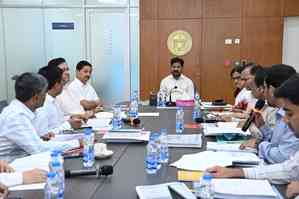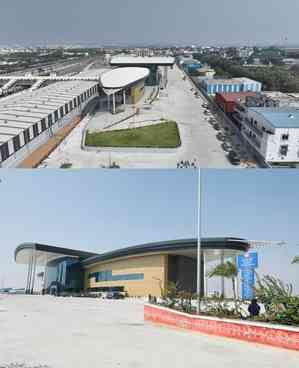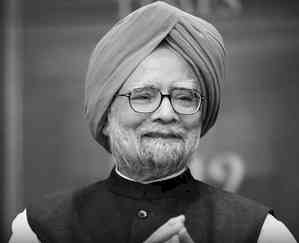Open Hybrid Cloud, AI winning mantras for Indian firms in 2022
Digital Transformation, particularly post-pandemic, is pervasive and fast accelerating. It is a business imperative for maintaining competitive parity in today's digital economy. As innovation, ecosystem partnerships, and integrated customer experiences become increasingly important, leaders need to move quickly to stay relevant.

By Sandip Patel
Digital Transformation, particularly post-pandemic, is pervasive and fast accelerating. It is a business imperative for maintaining competitive parity in today's digital economy. As innovation, ecosystem partnerships, and integrated customer experiences become increasingly important, leaders need to move quickly to stay relevant.
The choices - and investments - they make today will define, in part, how they will compete in a fast-moving global market.
Our recent Institute for Business Value study highlighted that nearly 6 out of 10 Indian CEOs expect cloud computing to deliver results in the next 2-3 years, and 45 per cent of CEOs in India expect AI/machine learning to deliver results in the next 2-3 years.
Another report from IBM Institute of Business Value asserted that organisations in India can increase the revenue impact of cloud to 13x (at par with their global counterparts) by combining their journey to cloud with enterprise transformation focusing on operational enablers (workforce skills, processes and extended intelligent workflows, and cybersecurity).
The following trends in 2022 will further make Hybrid Cloud and AI all-pervasive in the industry.
Hybrid Cloud
As organisations progress their hybrid and multi-cloud journeys, their focus will shift towards determining which workloads go where. Today, they are evaluating the migration of more mission-critical, complex workloads as they embrace modernization.
In the year ahead, they will need to take inventory of their IT environments to select which workloads and applications are best suited for the cloud and which should remain on-premises.
This will require companies to establish a hybrid cloud architecture that is open by design, which avoids vendor lock-in and affords seamless interoperability and portability between environments.
Security top priority as cyberthreats grow
An important factor leading to the acceleration in adoption of a hybrid and multi-cloud approach is the need to mitigate vendor concentration risk as cyberthreats grow. Data protection is critical and enterprises will need to prioritize security designed on an open architecture with a single point of control.
The aim is to gather a holistic view of threats and proactively mitigate attacks. Focus on cybersecurity as a systemic control is no longer only a business continuity issue - it is fast becoming a Board level topic that requires a robust plan with quarterly reviews and updates.
The Rise of 'Industry Clouds'
Data Governance is another critical piece. According to the IBM Institute of Business Value 'Unlock the business value of hybrid cloud' in India report, 74 percent of the respondents consider their ability to run governance and compliance tools across multiple clouds and industry-related regulatory compliance as important or extremely important to the success of their digital initiatives.
For instance, adhering to compliance and security requirements is pivotal for highly regulated industries such as the financial services sector and government agencies for example.
This has led to the shift towards the adoption of specialised clouds that have in-built regulatory controls. Organisations will increasingly leverage industry-specific platforms to help them balance innovation with stringent compliance protocols. The right platform - with built-in controls - will help them to innovate ahead of the market, without being out of regulatory compliance.
AI
Virtual assistants became a critical tool for large organisations and governments during the pandemic. In 2022, consumers will witness more personalised and fully realized interactions with their preferred retailers and service providers as AI assumes a bigger impact on the customer care journey, particularly with increasing digitally connected consumers.
AI will play a key role in helping businesses achieve sustainability benchmarks through greater measurement, data collection, and carbon accounting, as well as improved predictiveness and greater supply chain resiliency.
Predictive maintenance that reduces the need to replace parts and equipment, AI that analyses satellite imagery of storms and wildfires, and other such innovations will play a critical role in preparing companies to better meet their sustainability agenda.
As stewards of an organization's digital infrastructure, CIOs in 2021 were tasked with moving their workforces remotely, managing new types of security concerns as a result, and making sense of the explosion of data produced by modern applications, monitoring solutions and increased use of digital channels by employees and consumers.
Not only did these conditions create a "pressure cooker" for businesses interested in adopting automation technologies, but it also intensified interest around becoming more proactive, in turn increasing interest in applying AI to better predict IT issues, which has led to an area called AIOps.
AIOps allows an organisation's IT teams to proactively manage complex workplace environments through automation, potentially saving hundreds of thousands of dollars that could have been lost.
In 2022, AIOps will allow IT teams to quickly and confidently diagnose problems faster than they could manually, freeing them from laborious, time-intensive tasks to focus on delivering higher-value work for the organisation.
AIOps will also enable these IT teams to identify patterns in data that could ultimately indicate a potential issue could occur, getting ahead of IT issues before they happen.
We believe these trends have an enormous potential to accelerate an organisation's business growth and improve people's lives through access to more reliable and better goods, services and information.
(Sandip Patel is Managing Director, IBM India)


 IANS
IANS 













